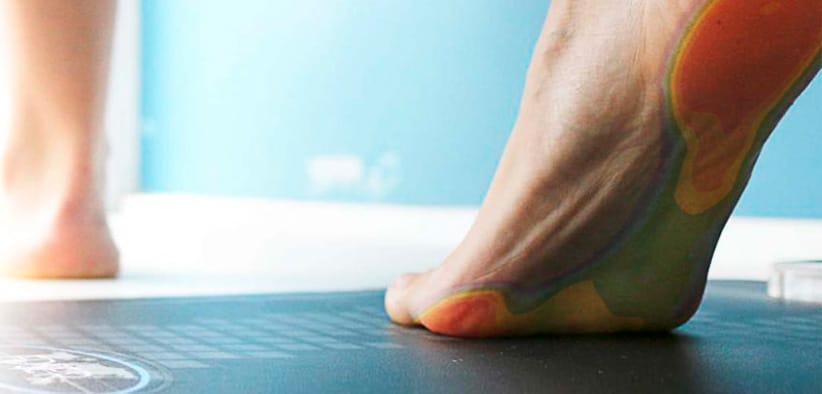Many problems of the locomotor system are caused by problems in the way we walk, run or simply stand. If you are looking for a study of the footprint in Malaga, the biomechanical study of the gait is a better option with which we diagnose, treat and prevent biomechanical alterations of the human body causing injuries and pathologies.
The biomechanical study of gait is the exploration by which we analyze, through the most advanced technology, the position of the feet in static and in movement, as well as the behavior of knees, hips and spine. This allows us to identify and treat the biomechanical causes that produce alterations.
We identify the imbalances that occur during movement in order to propose methods of intervention to correct and improve movement.
Articular and muscular caused by gait disturbances
Increasing natural and athletic performance after treatment
By correcting the alteration in the body axes.
+ 45 years correcting bad postural habits that cause pain and injuries.
In many cases, locomotor problems cannot be diagnosed with tests such as X-rays or MRI scans. Therefore, a biomechanical gait study is the best option to determine the causes of these problems.
Unlike other studies of the footprint, Ergodynamics analyzes the pressure points in motion, which allows us to differentiate the stages of reception, loading and impulse that occur during movement.

What does the biomechanical gait study consist of?
Interview with the patient in which we evaluate his medical history in order to know if he has suffered important injuries that we should take into account.
We observe and film the patient walking and running with shoes on, thus analyzing the mechanical axes of the leg, pelvis and back to determine possible imbalances or misalignments that may lead to injuries or pathologies. We see the patient walking barefoot to see how the toes and foot musculature act in action.
Dynamic study of the plantar footprint by means of the pressure platform, in which we analyze the load distribution of the body on the foot in movement. Unlike other studies of the footprint, in Ergodynamics we analyze the pressure points in movement, which allows us to differentiate the stages of reception, load and impulse that occur during the movement.
Tactile exploration of the back and legs, in which we analyze the global posture of the body and the muscular tensions that occur. Static balance study, which allows us to see the behavior of the body in monopodal load. Exploration of articular ranges in stretcher. Viewing of the film with the patient in which we describe graphically the alterations detected and their possible treatment with customized insoles. Depending on the case we also perform complementary explorations such as ultrasound to assess the state of tendons and muscles.
Once the biomechanical gait study has been carried out and the alterations have been observed, the treatment is designed using customized insoles. Thanks to them, these alterations are corrected, applying the degrees of correction progressively, depending on the results obtained after the initial examination and follow-up visits.
Treated pathologies:
FEET
Flat / cavus feet
Genu varus / valgus
Plantar fasciitis
Metatarsalgias
Morton’s neuromas
Calcaneal spurs
JOINTS
Gonarthrosis
Coxarthrosis
Chondropathies
Tendinitis
Periostitis
Knee pain
COLUMN
Scoliosis
Low back pain
Back pain
Muscle overloads
Benefits of undergoing a biomechanical gait study
Eliminates joint and muscle pain
More and better mobility
Improves stability
Provides quality of life
Increases natural physical and athletic performance
Corrects bad postural habits
Helps prevent injuries
Share
iònic.web